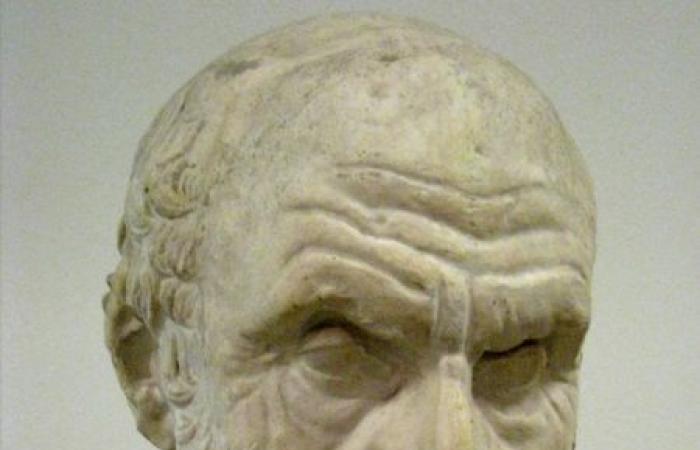Hippocrates of Cos, born around 460 BC, is a monumental figure in the history of medicine. Known as the “Father of Medicine,” his contributions laid the foundation for modern medical practice and established ethical principles that remain relevant today.
Early Years and Training
Hippocrates was born on the Greek island of Kos, into a family with a rich medical tradition. His father, Heraclides, and his grandfather, also called Hippocrates, were doctors, which deeply influenced his education and training. From a young age, Hippocrates showed a great aptitude for the study of medicine, being instructed in various disciplines, including biology, physiology, and ethics.
Medical Theories and Practices
One of Hippocrates’ most significant contributions was his rational and systematic approach to the treatment of disease. Before him, illnesses were often attributed to supernatural or divine causes. Hippocrates proposed that diseases had natural causes and could be understood through observation and study.
1.Theory of Humors: Hippocrates developed the theory of the four humors: blood, phlegm, yellow bile and black bile. He believed that a proper balance of these humors was essential for health, and that an imbalance resulted in disease. Although this theory has been surpassed by modern science, it was fundamental to the development of Western medicine.
2.Clinical Observation: Hippocrates emphasized the importance of careful observation of patients. His methods included evaluating symptoms, taking the patient’s medical history, and observing environmental factors. This attention to detail laid the foundation for modern clinical practice.
3.Medical Ethics: Hippocrates is famous for the Hippocratic Oath, an ethical code for doctors that, although it has been modified over time, is still relevant. This oath emphasizes principles such as confidentiality, non-maleficence, and professional responsibility.
(Photo: Wikimedia Commons)
Outstanding works
The Hippocratic Corpus, a collection of around 70 medical works attributed to Hippocrates and his followers, is a valuable source for understanding ancient Greek medicine. Although not all works were written by Hippocrates, they reflect his teachings and methodologies. Among the most important works are:
· Aphorisms: A series of short, concise statements about medical practice and disease. Many of these statements are used to this day, such as “Life is short, art is long, opportunity is fleeting, experience is deceptive, and judgment is difficult.”
· Epidemics: A set of case studies describing the symptoms and courses of various diseases in different localities. These texts show Hippocrates’ empirical approach and attention to detail.
· On the Nature of Man: A work that exposes the theory of humors and how their balance affects human health.
Impact and Legacy
The impact of Hippocrates on medicine is incalculable. His rational approach and his scientific method laid the foundation for modern medicine. The ethical principles that he promoted remain fundamental pillars in current medical training and practice.
· Influence on Western Medicine: The teachings of Hippocrates were adopted and developed by Roman physicians such as Galen, and their influence spread throughout the Middle Ages and Renaissance, forming the core of European medicine.
· Hippocratic Oath: Although it has been adapted, the Hippocratic Oath remains a rite of passage for doctors in many parts of the world, symbolizing commitment to ethics and patient well-being.
· Cultural Legacy: Hippocrates is not only remembered in the medical field, but also in popular culture. His name is synonymous with ethical and scientific medical practice, and his figure has inspired countless literary and artistic works.






